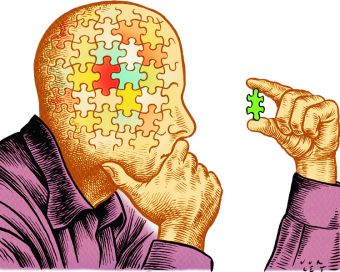
A reading of Schopenhauer, inspires a different view of old Nietzsche. Continue reading Does the abyss look into you?

A reading of Schopenhauer, inspires a different view of old Nietzsche. Continue reading Does the abyss look into you?

Bruno Latour has an interesting take with regards to modernity. In his book, We Have Never Been Modern, Latour claims that modernity emerged from two rigid absolutisms – the division of human culture from nonhuman nature, or the difference between the soft sciences and the hard sciences and the distinction between the present and the past. Continue reading Have we ever been “modern” at all?

In Latin that spells “nothing is without reason.” We often say “everything has a reason” when we are trying to explain something, an object or an event. The appropriate philosophical terminology is a bit more technical: the principle of sufficient reason, (PSR) which means all contingent facts have an explanation. Continue reading Nihil est sine ratione

Previously, I discussed the concept of metaphor here, and I thought a lot was left unsaid. Continue reading Metaphor is fundamental

“..engrossing…”
“…keeps the suspense mounting and the pages turning..”
“…delicious witty and gossipy…”
Alas – any of these blurbs still would sell this novel short, for it has all the virtues of your garden variety bestseller du jour – gripping plot, memorable characters, unconventional ending – and far more. Continue reading Les Liaisons Dangereuses

During my college career I have had to struggle against a stereotype about deaf people in general, fight against the common assumptions about a group of disabled people and constantly prove myself capable by shattering unfair but understandable generalizations. Continue reading Low Expectations
Is the word ‘deaf’ a label? How does it denote a person? Today, in this post-structural age, labels are everything. We use labels everyday, speak in labels, and we encounter labels everywhere. Sometimes we use labels for convenience, as shorthand for complicated concepts. Other times labels are used in technical vocabulary, to marginalize error. So, we identify ourselves with labels. Hence, the word “deaf” is a label that connotes a particular characteristic of a person. The dictionary explicitly signifies a person who is not physically able to hear, and that definition is derived from the norm of a society of peers who can. The identification of a person as deaf is a discursive product, because it is relevant only within a set of classification that is established by a particular discourse of deafness.
In the Norma Groce’s book Everyone Here Spoke Sign Language, a description of an independent community isolated on the small island Martha’s Vineyard, which was rife with a genetic predisposition to hearing loss, serves as an example where “deafness” was not a label of disability. Disability in this sense doesn’t necessarily result from a handicap, but rather is manifested through a society that devalues and segregates people who deviate from the physical norms. Consequently, any label that connotes disability is a socioeconomic passport for institutionalization.
However, this marginalization as a disability is a negative concept and does not satisfactorily answer the question – what is ‘deafness?’ Is there an alternative, more positive, definition?
One possible candidate is a social explanation, which is a departure from biological or existential explanations. As a label, deafness functions as a discursive formation that is socially constructed by discourse. The phrase ‘social construct’ is a celebrated description those radical freethinkers use to question the ideological beliefs of a modernist (that reality is a homogeneous entity, that knowledge is the sole result of a pure, sincere will to truth, and the meaning of anything is disinterestedly given).
Discursive formations are derivatives of discourse, which is the semiotic structuring of all social phenomena as codes and rules. This is practiced by a unity of discourse, by consensual agreement. Discourse defines identity and describes what characteristics are possible for a person. A discursive formation constitutes its object and generates knowledge about these objects. That means our knowledge is discursively determined, and the world is constituted in this way by discourse. However, nobody writes a discursive formation. There are no authors of discursive formations because they are constituted by archives, or anonymous collections of text.
These archives is the sustained recording of the history of the individual, and in doing so, the person has a place, a name, a number, a task, a credit history, etc., and never stray from the steady observation of authorities. This constant observation of behavior leads to a certain discipline: the person behaves as if they were under sustained surveillance. In the deaf person’s situation, especially in the USA, his life is observed, recorded, and probed under a microscope by a collaborative and cooperative effort of specialists (deaf teachers, guidance officers, speech language pathologists, interpreters or notetakers, and audiologists): a continuum of psychological profiles, aptitude test placements, audiograms, educational performance, objectives and other documented efforts.
The increasingly complex and technical serialization of the disabled person is an ongoing process of a biographical production. The biographical sketch of the individual, chronicled to a greater detail than ever, results in the ‘real,’ tangible and physical snapshot of the self! Panopticism is a disciplined, rational, detailed and bureaucratic surveillance, which signifies how behavior is directed by the machinery of society- an ‘automatization’ and ‘disindividualization’ of power.
The individual actively construct their social world, as opposed to having it imposed upon them. Therefore, it seems that the concept of deafness does not necessarily signify a disability, but is contingent upon what context the individual chooses to define himself. If labels are constructs, and language is the limit of thought, then I am nothing more than a social construct, that ‘deaf guy.’ However, I do not identify myself as a deaf person because of my existential nature as a free human being. To act otherwise would be bad faith.
(Originally published by the 49er, the CSULB newspaper, February 6, 2003)

Do you think there must be a human nature? If such a thing exists, at least a relatively fixed one, then true scientific understanding is possible. Because people, with a very limited amount or set of experiences, are capable of learning their own language, as well as use it creatively, then there must be some sort of “bio-physical structure” within the mind that enables individuals to deduce a unified language from the multiplicity of individual experiences. Continue reading Human Nature: True, False, or merely a construct?


Lately I have been distinguishing Buddhism from Christianity in my recent readings. Although, at bottom, both religions are nihilistic and decadent, I have realized Buddhism is a much healthier and more realistic view of life and philosophically superior. Continue reading Why Buddhism is superior to Christianity